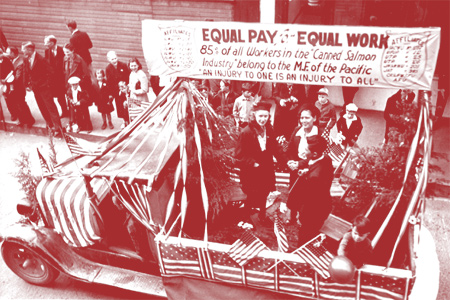 Don’t mean to rain on your Labor Day parade – we all do love a good party/picnic/barbecue – but Matt Barber has a timely reminder about the origins of the holiday we’re celebrating today; color it RED ~
Don’t mean to rain on your Labor Day parade – we all do love a good party/picnic/barbecue – but Matt Barber has a timely reminder about the origins of the holiday we’re celebrating today; color it RED ~
The history stretches back at least to 1882 when a couple of socialists named Matthew Maguire and Peter McGuire, both members of the Socialist Labor Party, proposed an official workers’ holiday in New York to be called Labor Day. While historians differ over which man was principally responsible, the socialist pair had success, and on Sept. 5 of that year the United States saw its first official socialist Labor Day celebrated in New York City.
The malcontents never quit do they? Endlessly demanding.
Whereas the rest of the socialist world celebrates Labor Day on May 1 (May Day), America has always marched to the beat of a different drummer. And so we — a nation made both the greatest and wealthiest in all of history through free-market principles, heretofore reasonably regulated, but, alas, regulated almost to death under our current administration — give our little nod to socialism on the last day of summer (appropriate, I think, as wherever there is socialism, the fall is not far behind).
But don’t let the fact that socialists founded the holiday spoil your summer’s end get-together. Take the opportunity to educate your friends and family about the joys of living in a socialist paradise. Here are some helpful links [Tip: don’t google “socialism” – try as it might the leftist search engine can’t seem to find any negative information about the equal-misery-for-all government model] ~
• Capitalism vs. Socialism in One Chart: South Korea vs. Venezuela Edition
• Alexander Solzhenitsyn on socialism
• Bernie Sanders Has No Idea, But Socialism Is Way Worse Than A Soda Tax
• Socialism Attacks the Family, Just as Its Inventors Intended
You might also want to point out which worldview it is that truly dignifies and elevates human labor ~
It was the influence of Christianity, remember, that led the Christian West to gradually raise its view of common labor. As tough as the serfs of the middle ages had it, they were vastly better off, and with far more rights, than the slaves under pagan Rome.
Christianity elevated the status of common laborers partly by recognizing them as a fellow creatures made in the image of God, and by insisting that the Christian peasant was a brother in Christ.






